READER COMMENTS ON
"Voting Machine Vendors Are Not Responsible Citizens? Really?"
(14 Responses so far...)
COMMENT #1 [Permalink]
...
Floridiot
said on 8/1/2007 @ 8:30 am PT...
Looks like New York has it covered
Good work Ellen.
COMMENT #2 [Permalink]
...
phil
said on 8/1/2007 @ 9:19 am PT...
# 1. The Corporation must show a history of legal and ethical behavior. Corporations with a history of the following are prohibited from contracting with local jurisdictions to provide voting equipment: criminal indictments, criminal convictions, civil fines and injunctions imposed by governmental agencies, anti-trust investigations, ethical violations, tax delinquencies, debarment by the federal government, prior determinations of integrity-related non-responsibility, and other indications of illegal or unethical behaviors.
# 2. The Corporation must have performed at acceptable levels on other governmental contracts. Corporations with a history of the following are prohibited from contracting with local jurisdictions to provide voting equipment: reports of less than satisfactory performance, early contract termination for cause, contract abandonment, court determinations of breach of contract, other indications of bad faith.
I BEEN SAYING THIS FOR AWHILE!! It should be not only Corporations, Companies, but Individuals and it should apply to ALL OF GOVERNMENT! Why is Rumsfield still in the Pentagon? When will these revolving doors be stopped?
COMMENT #3 [Permalink]
...
phil
said on 8/1/2007 @ 9:22 am PT...
Let's not forget all the bastards from the 60's and 70's Cambodia, Laos, Vietnam, Iran-Contra... and on and on
Are there still POW's in Laos, Cambodia?
COMMENT #4 [Permalink]
...
phil
said on 8/1/2007 @ 9:23 am PT...
Well, I have my own answer.
The day that Breaking your OATH OF OFFICE is prosecuted.
COMMENT #5 [Permalink]
...
Ancient
said on 8/1/2007 @ 10:30 am PT...
Thank you for getting it, Ms. Novick! Two of the biggest ways the American public are manipulated into believing they are still free are voting on electronic voting equipment (along with other GOP election fraud practices) and believing in the korporate compromised MSM who except in rare instances even come close to reporting accurately on electronic voting and election fraud (not to be confused with voter fraud.) Here's a great article she wrote on a free press:
http://www.opednews.com/...americans_have_lost_.htm
If the majority of people look at these two issues side by side they'd start to see it's how the corupted get where they are, and make their billions in war and energy profiteering together.
COMMENT #6 [Permalink]
...
Dredd
said on 8/1/2007 @ 12:58 pm PT...
So, will this be enough to have the republican EVM makers declared persona non grata?
Or is the addiction to irresponsible republican citizenship by the reds in the red states, in the EVM world, in the Senate, in the House, just too much? They are shutting down recovery by filibuster after filibuster, DeLay after DeLay.
And add the addiction to republican oil, the republican addiction to being in Iraq, and one must wonder "is addiction to them stronger than america's relationship to reason"?
So far the addiction to irresponsible republicans has been more than the nation could handle. Since we got the first one's free from Newt and his republican contract with on americans in 1994, our reality market is bearish.
We need to get america to a rehabilitation center soon, and we need to get the "I'm not a crook" crooks to a jail near you soon.
COMMENT #7 [Permalink]
...
calipendence
said on 8/1/2007 @ 6:38 pm PT...
In addition to what is said here, there's another reason that these machine vendors aren't "responsible citizens". That is, they are NOT persons, despite certain corporate serving judges' judicial activist feelings on that subject.
COMMENT #8 [Permalink]
...
Kevin Chung
said on 8/1/2007 @ 6:49 pm PT...
For those care about the truth and facts on attempted smearing about Congressman Holt and AVANTE are invited to read our position. Clarification of AVANTE’s position on Election and Voting System Integrity and posting in OpEdNews.com:
If you are too busy, the following is a summary.
AVANTE’s positions and actions:
1. AVANTE has deep respect for the tireless efforts by the election integrity activists, academics and technology experts. Their efforts have contributed to the many and continuous improvements of the voting systems and processes.
2. AVANTE respects the desire to have open sources in election system or having the voting system as transparent as possible. Our company software is always available for scrutiny. We differ in the feasibility of having ALL of the source codes made available for at least in the near term of five to 10 years without dramatic lowering in the voting system accessibility requirements in HAVA. AVANTE believe explaining and telling the truth about this “physical impossibility” represents deepest respects to the State of New York and its voters. We hope our actions in servicing its ballot marking devices speaks to our integrity as a company. We hope speaking the truth will not be considered as “attacking” New York election codes.
3. In terms of the many smearing, defamation, and misinformation leveled against us, AVANTE has never donated to any national parties or political leaders including Congressman Holt. All of the company’s founders and stockholders have not donated to any national elected officials with more than $100.
4. AVANTE does not belong to any trade lobbying organizations and has not joined the Election Technology Council or its predecessor ITAA. AVANTE continues to maintain its independence and voice of supports to those that promoting election integrity. AVANTE believes that the current problems in DRE with VVPR voting systems are related to the design and engineering rather than the solution and concept. AVANTE have proven that all of the specific problems known and caused tremendous constellation have a solution. AVANTE regrets for some misconception that our staff may have conveyed that other election companies have earned their “stripes”.
5. AVANTE believes that current optical scan voting systems and processes are much less than equal to the integrity required by the current EAC 2005 voting system standards dictating the DRE with VVPR. They lack the ability to prevent tampering once the ballots have been submitted. This point is highlighted in the recent study in Florida.
6. For those that may not know us well, AVANTE have its many systems certified in 15 states and have sold its systems to NJ and NY. AVANTE continues its commitment and efforts in selling its paging and full-face DRE with properly engineered and designed VVPR. Besides trying to recover the value of its intellectual properties, AVANTE continues its commitment and efforts in perfecting and selling its ballot marking device as well as precinct-based optical scan system that captures the digital image of each ballot and show the voters as exactly how the system is registering their ballots not just having over-voted or under-voted contests.
COMMENT #9 [Permalink]
...
andi novick
said on 8/1/2007 @ 9:33 pm PT...
This is in response to the comment posted here, which defend Avante saying:
"AVANTE respects the desire to have open sources in election system or having the voting system as transparent as possible. Our company software is always available for scrutiny"
That's a lie. Avante chooses to use closed source software for its entire voting system. Avante, along with the other major vendors, would like the right to count our votes on its DREs in secret and will never tell us the secret magic behind that "official tally" nor is any of the source coding as to how their DRE was programmed to process and count the votes, available for scrutiny.
Avante can't escrow the source code for its operating system because it chose to use Microsoft, which won't escrow. But even if Avante chose to be as open as Diebold and ES&S, who can escrow their source code for their operating system (what a statement-- can't even rate as high as Diebold and ES&S)– that still would be concealing their source code from the public.
THERE IS NOTHING AT ALL TRANSPARENT ABOUT AVANTE– QUITE THE OPPOSITE IS TRUE.
Here's some excerpts from what I wrote in response to Avante's email which Avante sent to all the election commissioners in NY in an effort to try to get them to ignore NY's escrow law the way Avante had done. The full response to Avante's email can be found at Avante's (Not Very Good) Offer to New York Voters but start with New Yorkers for Verified Voting's Bo Lipari's Voting Machine Vendors – We Can't and We Won't .
The source coding for the software for the operating system itself as well as the election management system (EMS), is claimed to be secret, proprietary information. Under New York’s law, at least the SBOE is required to view this source code (even as we the public are left in the dark); hence the escrow requirement. Now that New York is preparing to restart testing voting systems Avante, a vendor who never had any intention of complying with NY’s escrow laws, argues at the 11th hour that our Law is so unfair (to Avante) that it deserves to be violated!
Well that’s a fairly outrageous position (unless you believe that NY laws should be written for the benefit of private voting vendors rather than the citizens of NY). Indeed it would be hard to come up with a more un-American argument than:
"I, Avante, want to make sure that no one ever sees how our computers process and count the votes of New Yorkers so New York should disregard its law and allow us to keep this vital information concealed!"
And yet that is precisely what Avante is demanding.
Avante doesn’t want us to see how it has designed its voting computer to process and count our votes. If it did it would have used open source software, but it chose not to.
Perhaps it is Avante’s closing line of its email, in arguing that New York should change its law so as to eliminate any escrow requirement (such that New York could never know how the computers were programmed to count the votes) that is the most honest and revealing of Avante’s claims. Avante’s VP writes:
“The point of changing the law is to allow NY to certify new equipment. The current law makes that impossible. There is no intent to reduce the integrity of the vote.”
Well the Law was not written for the Avantes of the world merely to permit them to have their machines certified using secret proprietary software.
To Avante and the other vendors who would like us to trust them because “There is no intent to reduce the integrity of the vote” I would say, thanks, but no thanks. NYS Law had no intent to prevent you from doing business in our state. That was your choice by creating voting systems which count our votes in secret.
"AVANTE believe explaining and telling the truth about this “physical impossibility” represents deepest respects to the State of New York and its voters"
That's a lie. Avante chose to design a closed system asserting ownership rights over the people's information about how the votes are processed and counted. It was possible to create an open source system and others have done it. Avante CHOSE not to. It insults New Yorkers to be lied to.
"AVANTE has deep respect for the tireless efforts by the election integrity activists"
That's a lie. What more can I say.
Today this unrespected tireless activist published these two pieces on the nightmare which is the voting systems that companies like Avante try to shove down our democracy.
Elections Belong To The People: No One Can Conceal Our Right To Know How Our Votes are Counted
HEADLINES: FROM NOW ON ALL VOTE COUNTING IN THE UNITED STATES WILL BE DONE IN SECRET. ALL CITIZENS ARE PROHIBITED FROM KNOWING HOW THE GOVERNMENT WILL BE COUNTING THEIR VOTES
Well that's not exactly what happened. It's actually worse.
OUR WORST NIGHTMARE IS OUR REALITY
Imagine if you woke up tomorrow morning to read:
IN THE INTERESTS OF NATIONAL SECURITY THE 2008 ELECTIONS WILL BE COUNTED IN SECRET. NO CITIZEN WILL BE PERMITTED TO KNOW HOW THE COUNTING IS DONE OR WHO IS DOING IT. THE "OFFICIAL" RESULTS WILL BE ANNOUNCED AND THERE WILL BE NO WAY TO VERIFY THEM.
Just think, then they wouldn't have to cancel the elections under false pretenses. Imagine if this was only a nightmare.
Andi Novick
COMMENT #10 [Permalink]
...
phil
said on 8/2/2007 @ 12:46 am PT...
If Debra Bowen does the right thing, the only electronic voting machines ever used again will be the one that helps the disabled print a paper ballot, which can then be hand counted with public oversight.
We already have what is needed to do it!
INTERFACES FOR THE DISABLED, DESKTOPS, LAPTOPS, PRINTERS, PAPER and HUMAN BEINGS!
They print your sample ballot, just print a real ballot and were done here.
End of Nightmare.
COMMENT #11 [Permalink]
...
Dredd
said on 8/2/2007 @ 7:04 am PT...
Why can't corporations that make EVM's have the decency to be bi-partisan in management, oversight, and administration?
And why can't they have a rule that they can not work as election officials for two years after they worked for an EVM company? What about it Seilor?
The current Jack Abramoff designed system, where EVM company employees go to work as election officials after selling bad equipment to the previous election officials, is like congress where the greatest Pharma legislation mandated that prescription drug prices could not be negotiated, pushed thru by republican congressmen who then went directly to work for Pharma for two million salary per year.
It is so sick even SICKO would be ashamed.
COMMENT #12 [Permalink]
...
Dredd
said on 8/2/2007 @ 7:12 am PT...
Kevin Chung #8
Your claims indicate that you have above average knowledge about Avante.
What have it and/or its sister corp been doing with the military industrial complex (DoD, etc.), in terms of contracts and/or sales?
COMMENT #13 [Permalink]
...
Dredd
said on 8/2/2007 @ 7:22 am PT...
Kevin Chung #8 ... continued ...
Read this thread to find out the link between EVM companies, those that work for them, and the one who certifies the EVMs, and the military industrial complex.
COMMENT #14 [Permalink]
...
EllenB
said on 8/3/2007 @ 3:09 am PT...
Do other states have these ethical violation and prior performance laws??? Or is it just N.Y.???


 Kamala Rising:
Kamala Rising: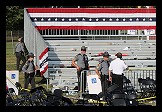 Evidence Fails to Establish Attempted Trump Assass-ination Politically Motivated
Evidence Fails to Establish Attempted Trump Assass-ination Politically Motivated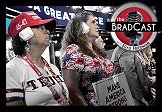 Former MAGA 'Cultist' on the State of the Race for 'MAGA Americans': 'BradCast' 7/23/24
Former MAGA 'Cultist' on the State of the Race for 'MAGA Americans': 'BradCast' 7/23/24  'Green News Report' 7/23/24
'Green News Report' 7/23/24
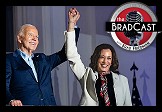 Biden Out, Endorses
Biden Out, Endorses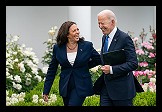 BIDEN DROPS REELECTION BID
BIDEN DROPS REELECTION BID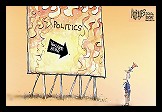 Sunday 'You Are Here' Toons
Sunday 'You Are Here' Toons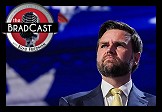 What J.D. Vance Forgot to Tell You (and Lied About) at the RNC: 'BradCast' 7/18/24
What J.D. Vance Forgot to Tell You (and Lied About) at the RNC: 'BradCast' 7/18/24 'Green News Report' 7/18/24
'Green News Report' 7/18/24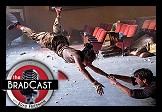 Holding on for Dear Life Amid the Political Whirlwind: 'BradCast' 7/17/24
Holding on for Dear Life Amid the Political Whirlwind: 'BradCast' 7/17/24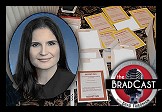 Cannon's Corruption: 'BradCast' 7/16/24
Cannon's Corruption: 'BradCast' 7/16/24 'Green News Report' 7/16/24
'Green News Report' 7/16/24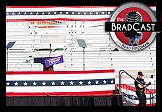 Amid the Assassination Attempt Aftermath:
Amid the Assassination Attempt Aftermath: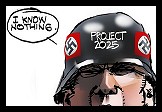
 Meanwhile... : 'BradCast' 7/11/24
Meanwhile... : 'BradCast' 7/11/24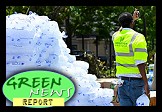 'Green News Report' 7/11/24
'Green News Report' 7/11/24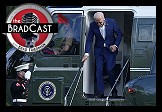 Paging 'Johnny Unbeatable'! Dems (Actually!) in Disarray!: 'BradCast' 7/10/24
Paging 'Johnny Unbeatable'! Dems (Actually!) in Disarray!: 'BradCast' 7/10/24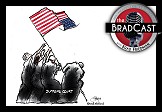 SCOTUS Immunity Ruling 'As Bad as it Sounds', And Worse: 'BradCast' 7/9/24
SCOTUS Immunity Ruling 'As Bad as it Sounds', And Worse: 'BradCast' 7/9/24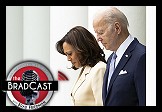 So, What Now?: 'BradCast' 7/8/24
So, What Now?: 'BradCast' 7/8/24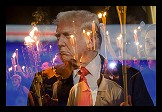 Debunking MAGA Cult Xenophobia
Debunking MAGA Cult Xenophobia A Friendly Suggestion: Harris-Newsom 2024
A Friendly Suggestion: Harris-Newsom 2024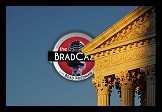 Prosecutor: SCOTUS Corruption Ruling Less Corrupt Than Appears: 'BradCast' 6/27/24
Prosecutor: SCOTUS Corruption Ruling Less Corrupt Than Appears: 'BradCast' 6/27/24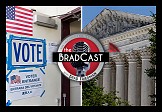 Good News and Bad: At the Polls and From the Corrupted Court: 'BradCast' 6/26/24
Good News and Bad: At the Polls and From the Corrupted Court: 'BradCast' 6/26/24 'Emptywheel' on Assange Hacking, Plea Deal: 'BradCast' 6/25/24
'Emptywheel' on Assange Hacking, Plea Deal: 'BradCast' 6/25/24
 VA GOP VOTER REG FRAUDSTER OFF HOOK
VA GOP VOTER REG FRAUDSTER OFF HOOK Criminal GOP Voter Registration Fraud Probe Expanding in VA
Criminal GOP Voter Registration Fraud Probe Expanding in VA DOJ PROBE SOUGHT AFTER VA ARREST
DOJ PROBE SOUGHT AFTER VA ARREST Arrest in VA: GOP Voter Reg Scandal Widens
Arrest in VA: GOP Voter Reg Scandal Widens ALL TOGETHER: ROVE, SPROUL, KOCHS, RNC
ALL TOGETHER: ROVE, SPROUL, KOCHS, RNC LATimes: RNC's 'Fired' Sproul Working for Repubs in 'as Many as 30 States'
LATimes: RNC's 'Fired' Sproul Working for Repubs in 'as Many as 30 States' 'Fired' Sproul Group 'Cloned', Still Working for Republicans in At Least 10 States
'Fired' Sproul Group 'Cloned', Still Working for Republicans in At Least 10 States FINALLY: FOX ON GOP REG FRAUD SCANDAL
FINALLY: FOX ON GOP REG FRAUD SCANDAL COLORADO FOLLOWS FLORIDA WITH GOP CRIMINAL INVESTIGATION
COLORADO FOLLOWS FLORIDA WITH GOP CRIMINAL INVESTIGATION CRIMINAL PROBE LAUNCHED INTO GOP VOTER REGISTRATION FRAUD SCANDAL IN FL
CRIMINAL PROBE LAUNCHED INTO GOP VOTER REGISTRATION FRAUD SCANDAL IN FL Brad Breaks PA Photo ID & GOP Registration Fraud Scandal News on Hartmann TV
Brad Breaks PA Photo ID & GOP Registration Fraud Scandal News on Hartmann TV  CAUGHT ON TAPE: COORDINATED NATIONWIDE GOP VOTER REG SCAM
CAUGHT ON TAPE: COORDINATED NATIONWIDE GOP VOTER REG SCAM CRIMINAL ELECTION FRAUD COMPLAINT FILED AGAINST GOP 'FRAUD' FIRM
CRIMINAL ELECTION FRAUD COMPLAINT FILED AGAINST GOP 'FRAUD' FIRM RICK SCOTT GETS ROLLED IN GOP REGISTRATION FRAUD SCANDAL
RICK SCOTT GETS ROLLED IN GOP REGISTRATION FRAUD SCANDAL VIDEO: Brad Breaks GOP Reg Fraud Scandal on Hartmann TV
VIDEO: Brad Breaks GOP Reg Fraud Scandal on Hartmann TV RNC FIRES NATIONAL VOTER REGISTRATION FIRM FOR FRAUD
RNC FIRES NATIONAL VOTER REGISTRATION FIRM FOR FRAUD EXCLUSIVE: Intvw w/ FL Official Who First Discovered GOP Reg Fraud
EXCLUSIVE: Intvw w/ FL Official Who First Discovered GOP Reg Fraud GOP REGISTRATION FRAUD FOUND IN FL
GOP REGISTRATION FRAUD FOUND IN FL


































